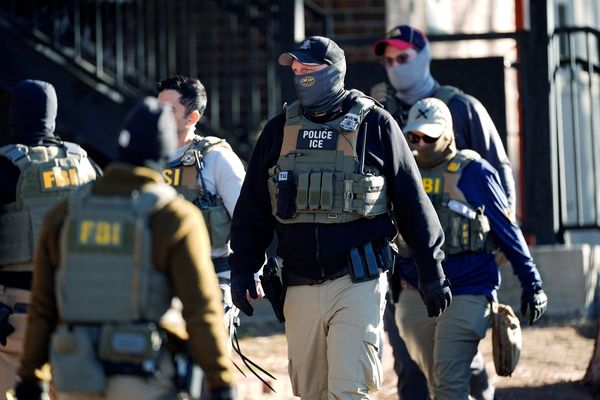
Have you ever wondered what really connects you to your neighbors in a townhome community? Most people think it’s just the shared walls, maybe a common roof, or the occasional awkward encounter at the mailbox. But what if your connection runs deeper, right down to the electrical wiring? The strange case of linked wiring in townhomes is more common than you might think, and it can lead to a host of unexpected problems. Whether you’re a first-time buyer, a long-term resident, or just curious about the quirks of townhome living, understanding the risks and realities of shared wiring is essential. This isn’t just about flickering lights or tripped breakers; it’s about your safety, privacy, and peace of mind.
1. What Is Linked Wiring in Townhomes?
Linked wiring refers to electrical circuits that cross property lines within a townhome complex. Instead of each unit having a completely independent electrical system, some townhomes—especially older ones—may have wiring that’s physically or functionally connected to a neighbor’s. This can happen due to original construction shortcuts, later renovations, or even simple mistakes during repairs. The result? Your power, and sometimes even your internet or cable, might be more intertwined with your neighbor’s than you realize. If not properly addressed, this setup can lead to confusion, billing issues, and even safety hazards.
2. The Hidden Dangers of Shared Electrical Systems
When townhomes share more than walls, the risks go beyond inconvenience. Linked wiring can create serious safety concerns. For example, a power surge in your neighbor’s unit could travel into your home, damaging your electronics or even causing a fire. Faulty wiring is a leading cause of residential fires, and shared circuits can make it harder to pinpoint the source of a problem. If you notice frequent breaker trips, unexplained power outages, or lights dimming when your neighbor uses appliances, these could be signs of a shared system. The National Fire Protection Association highlights the importance of proper electrical maintenance to prevent hazards.
3. Privacy Concerns: When Your Power Isn’t Just Yours
Linked wiring doesn’t just affect your appliances—it can also impact your privacy. In rare cases, shared circuits can allow signals from devices like baby monitors, intercoms, or even security cameras to cross over into neighboring units. Imagine hearing your neighbor’s conversations through your own speakers or, worse, having your security feed accessible to someone next door. While these scenarios are uncommon, they’re not impossible, especially in older buildings with outdated wiring. Protecting your privacy means ensuring your electrical system is truly separate from your neighbor’s.
4. Billing Nightmares and Legal Headaches
One of the most frustrating aspects of linked wiring is the potential for billing confusion. If your electrical meter is picking up usage from your neighbor’s unit—or vice versa—you could end up paying for someone else’s power. Sorting out these issues can be a bureaucratic nightmare, often requiring utility company investigations, electrician reports, and sometimes even legal action. In some cases, homeowners have discovered years of overpayment before realizing the problem. If you suspect your bills are unusually high, it’s worth investigating whether your wiring is to blame. The U.S. Department of Energy offers tips on understanding your electric bill and identifying unusual usage patterns.
5. How to Detect Linked Wiring in Your Townhome
If you’re concerned about shared wiring, there are practical steps you can take. Start by turning off your main breaker and checking if any outlets or lights in your unit—or your neighbor’s—remain powered. You can also hire a licensed electrician to perform a thorough inspection. Look for signs like unexplained power fluctuations, outlets that don’t work as expected, or appliances that behave oddly. If you’re buying a townhome, always request a detailed electrical inspection as part of your due diligence. Don’t assume that just because everything “seems” separate, it actually is.
6. Fixing the Problem: What Are Your Options?
If you discover that your townhome shares wiring with a neighbor, don’t panic. The first step is to document the issue and notify your homeowners’ association (HOA) or property manager. In many cases, the HOA is responsible for common area wiring and may cover the cost of repairs. If not, you and your neighbor may need to split the expense of hiring an electrician to separate the circuits. This process can involve rewiring parts of your home, updating breaker panels, and ensuring each unit has its own dedicated meter. While it can be costly, the peace of mind and safety improvements are well worth it.
7. Preventing Linked Wiring in Future Townhome Purchases
If you’re in the market for a townhome, make electrical independence a priority. Ask for documentation showing that each unit has its own electrical panel and meter. During the inspection, have a professional verify that no circuits are shared. Don’t be afraid to ask questions about the building’s history, especially if it’s older or has undergone renovations. A little due diligence now can save you from major headaches down the road.
When Townhomes Share More Than Walls: Why Awareness Is Your Best Tool
Linked wiring in townhomes is a hidden issue that can affect your safety, privacy, and finances. By understanding the risks, knowing how to spot the signs, and taking proactive steps, you can protect yourself and your investment. Awareness is your best defense against the strange case of shared wiring, whether you’re a current owner or a prospective buyer. Don’t let what’s behind the walls catch you off guard—take control and ensure your home is truly your own.
Have you ever experienced electrical issues in a townhome or discovered your wiring was linked to a neighbor’s? Share your story or advice in the comments below!
Read More
The Neighbors Sold Their House in 12 Days
Clever Do-It-Yourself Tip: Rewiring Your Home Telephone Network
The post When Townhomes Share More Than Walls: The Strange Case of Linked Wiring appeared first on Clever Dude Personal Finance & Money.







